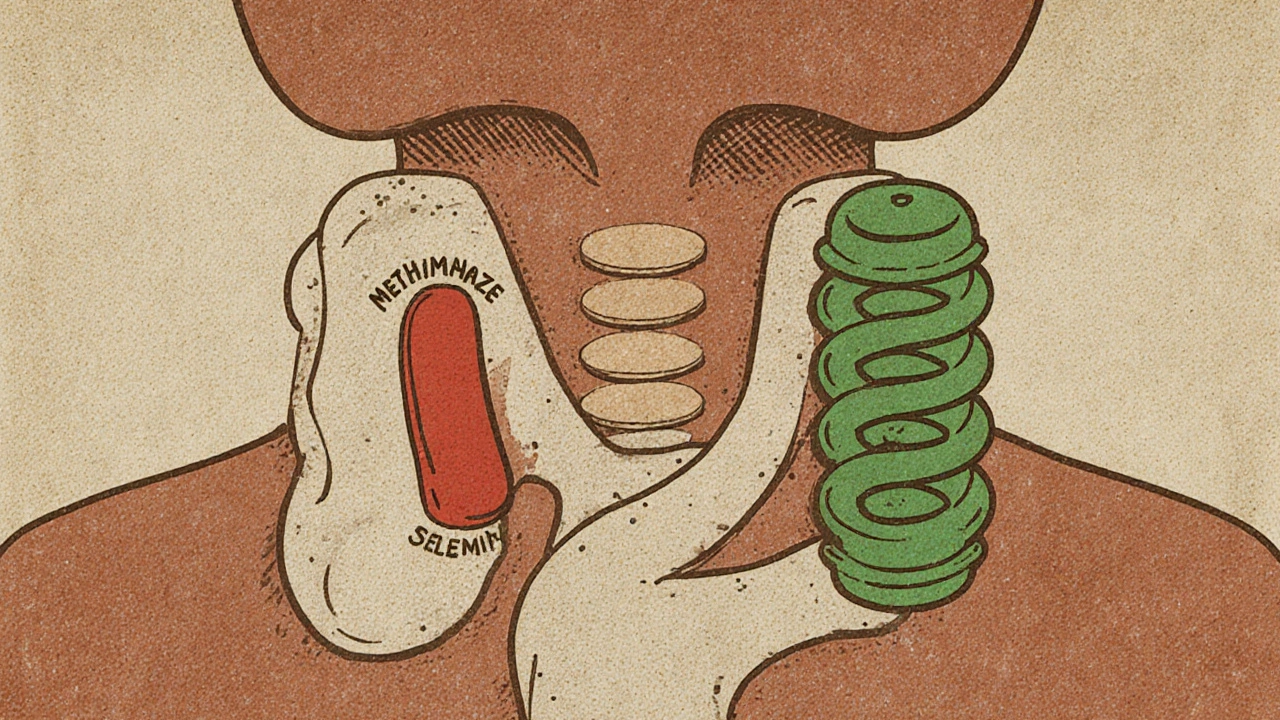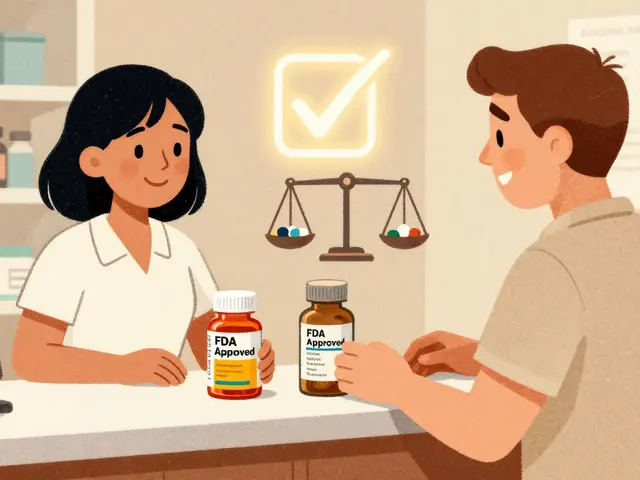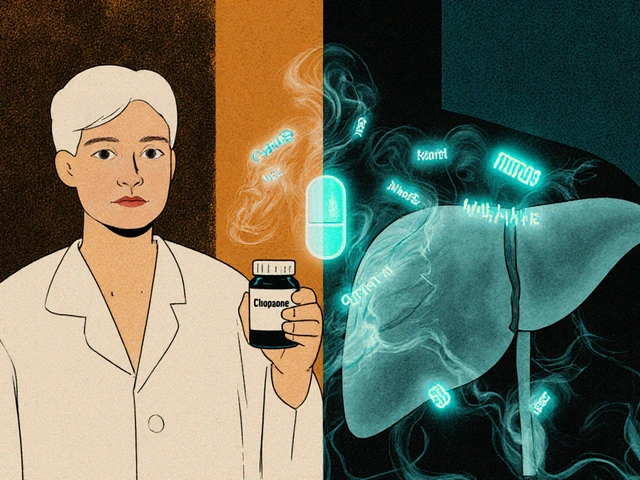Graves Disease: Causes, Symptoms, and How Medications Help
When your immune system mistakenly attacks your thyroid, you might be dealing with Graves disease, an autoimmune disorder that triggers the thyroid to produce too much hormone. Also known as toxic diffuse goiter, it’s the most common cause of hyperthyroidism—a condition where your body’s metabolism speeds up uncontrollably. This isn’t just about feeling jittery or losing weight. Graves disease can wreck your sleep, make your heart race, cause bulging eyes, and even lead to serious heart problems if left untreated.
The real kicker? It’s not just your thyroid that’s involved. Autoimmune thyroid, the broader category Graves disease belongs to includes other conditions like Hashimoto’s, but Graves is the one that makes your thyroid go into overdrive. It’s more common in women, often shows up between ages 30 and 50, and can run in families. If you’ve got a relative with thyroid trouble, your risk goes up. And it doesn’t stop at the thyroid—many people with Graves also develop eye problems (called Graves ophthalmopathy) where the tissue behind the eyes swells, pushing them forward. Some even get skin changes on their shins, a rare but telltale sign called pretibial myxedema.
Managing Graves disease isn’t about a quick fix. It’s about balancing hormones, calming the immune system, and protecting your organs. Thyroid medication, drugs like methimazole and propylthiouracil that slow hormone production are usually the first line of defense. But here’s where things get tricky: some people eventually need to take levothyroxine, a synthetic thyroid hormone used after the gland is damaged or removed. That’s because treatments like radioactive iodine or surgery can leave you with too little thyroid function—so you switch from overproducing to underproducing. Suddenly, you’re managing hypothyroidism instead. It’s a common pivot, and it’s why knowing how levothyroxine interacts with food, supplements, and other meds matters just as much as the initial diagnosis.
You’ll find posts here that dig into how to time your thyroid meds with protein shakes, how to avoid dangerous interactions, and what to do when your prescription label doesn’t make sense. There’s also advice on splitting pills to cut costs, packing travel kits for chronic conditions, and understanding side effects that might be in your head—or in your meds. This isn’t just theory. These are real-life strategies people use every day to live with Graves disease without letting it run their lives.










